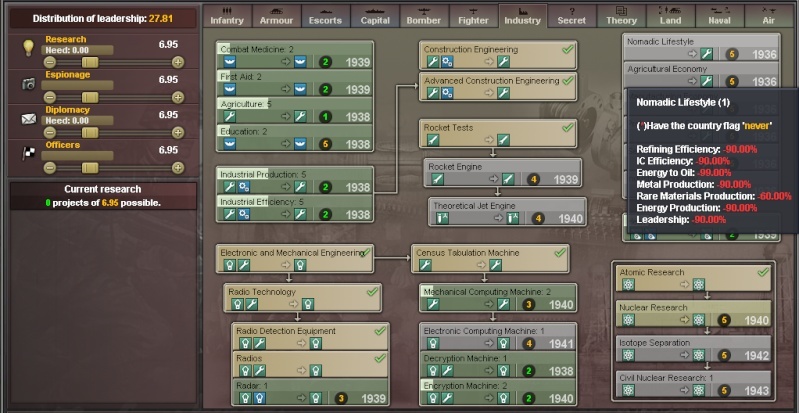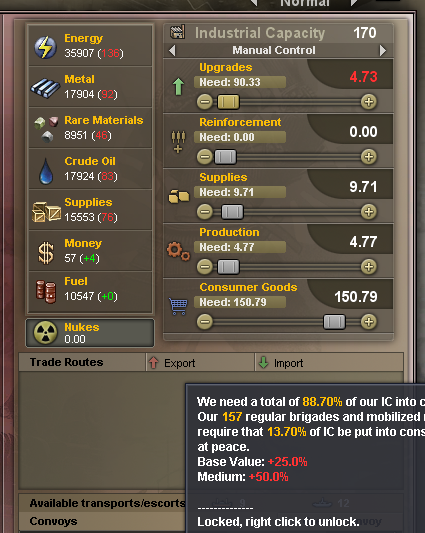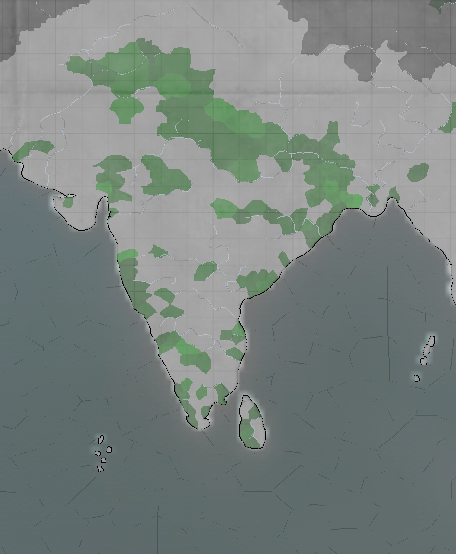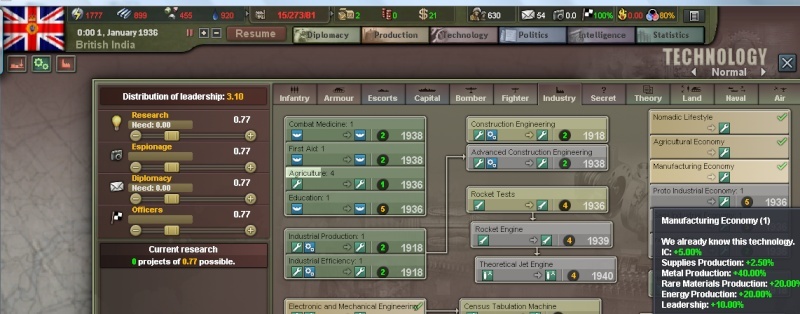Okay, I just spend some 2 hours transfering a small scetch as a visualisation of the model that I drew by hand on a piece of paper into a picture on the PC to share with you.
Here is the result:
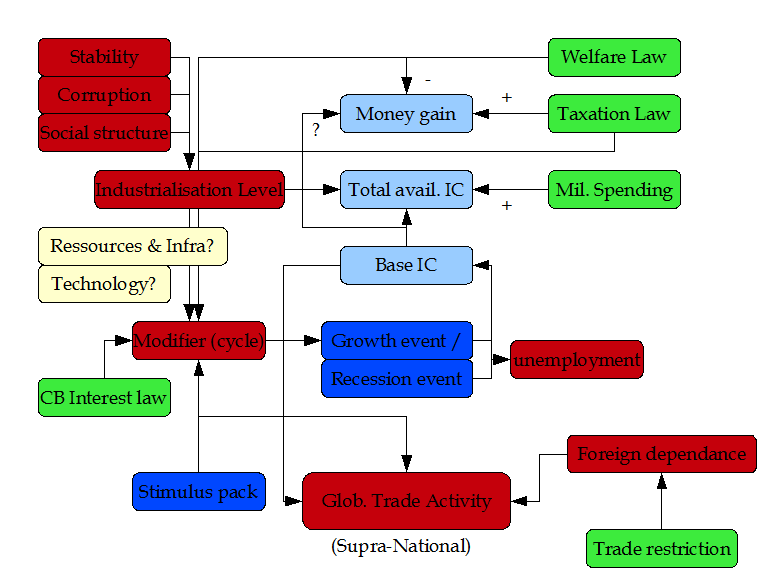
Unfortunately, it was my first attempt to use the program, so it is not as perfect as my hand-drawing, but I hope you nevertheless get the point.
Some notes:
-Green boxes are laws, as you could easily guess
-red boxes are modifiers or variables that have to be scripted
-blue boxes (dark blue) are events or decisions
-light blue boxes are basic game mechanisms.
-white boxes with question-marks are to be discussed in regard to the model & their implementation
So, let me explain a little bit on the new things I introduced and the old things that are now brought into theoretical connection & order.
We start with the part left on top:
-Corruption, Stability, Social Structure
I put them up as exogenous (=outside the model) variables for now, I will have to make up my mind on how these will be influenced during the game and tied to other mechanisms.
They will influence the industrialisation-variable (or rather, technology) and will probably be tied into the political system which is still in its early development. Don´t expect to get any good economic development into motion with widespread corruption, bad stability or a very rigid societal structure.
Corruption is kind of self-explaining and the logic behind that is also visible. It is common knowledge that government corruption is one of the major problems for countries in Africa but also in South America and also Asian countries. Nevertheless, it is the weakest of the three I chose as essentials, as even India & China are so corrupt today that some businessman say, corrupting officials is the only way to make business there (at least this was the case in India)
I decided that Stability, a basic concept of Eu and also CK, has some importance for economy & development as well. It will not necessarily a modifier ranging from -3 to 3, but I will implement the basic idea behind it: An abstraction for the political & societal stability in your country, the confidence of your people in regards to the future. This one is obviously important as confidence & stability go hand in had - if the stability is low, there is usually less confidence and people tend to spend & especialy invest less, which leads to economic slowdown.
(Note: it is not depicted in the picture, but stability will also increase growth/recession-tendencies)
The third factor for industrialisation is societal structure. Looking into history, this one is probably THE most important socio-economic factor why some countries emerged and some remained backwards. It will include different kinds of societies, I will have to research somewhat deeper into this and am very happy about any help provided here.
Until then, it remains a somewhat undefined component, justified by the facts that nomadic societies never developed sophisticated industrial structures, that oligarchic/hierarchical societies with very unequal wealth-distribution fared worse in overall comparison than those with a free middle class, more equal wealth distribution and more social mobility. But all this remainds shady for now, until I focus my view on this.
I already talked about the other components prior to this post, thus I hope a small summary will do it for now:
Base IC relates to GDP, total available IC to GDP for defence purpose. I don´t know yet, but I will probably get rid of the consumer-goods branch by reducing it to 0.00 need and instead increasing supply-drain of troops.
Your set of laws influence how much of your GDP is used for military purpose, how much taxes you collect and how much money you spend for welfare.
Furtermore, you can set a CB-insterest-rate that might influence the country modifier for economic cycles with a slight chance in either direction. The country modifier is furthermore influenced by the industrial level (only semi-industrial or better have to cope with that), taxation, welfare spending, stimulus packs that are issued as decisions and global trade activity.
Global trade is supra-national (as it says - global) and will influence your development according to your foreign trade-dependence. To keep things simple, there is no distinction between import & export, only foreign dependence, as reduction in global trade is never good for a highly trade-dependent economy. Foreign dependence will be influenced by your trade-restriction laws and some amount of luck for now, and it will influence global trade activity regarding your base-IC - the bigger your economy, the more it will function as international "locomotive" or the negative counter-example.
And, to finish our "small" comprehension of the economy-model here, we have the growth & recession-events, appearing according to the state of your economy as depicted by the respective modifiers. They will influence base-IC (your GDP) and also unemployment, an important variable that will be ported into the political system.
----------------------
Short Political system outlook:
As I said, unemployment is one of the keys here. It will influence stability (being also one of the important variables for industrialisation) as high unemployment leads to unrest in a country, the fear of unemployment makes people spend less and so on. Furthermore it will increase dissent.
Stability will also influence your party-popularity and probably also organization-values. With decreasing stability, your country-politics will radicalize (just look into some news for current examples)
That is what I have noted until now. The question is, how will corruption, social structure be influenced and what other possibilites are there to influence stability?
What other factors apply in the political field, that can be put in as -systematic- influences? Everything else, without a direct cause-effect-relation have to be simulated with more or less random events.
I´d be glad about some help here and some more elaborate comments, suggestions and critique on the economic part, to bring some discussion up here that might lead to new ideas.





